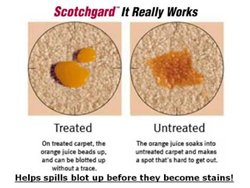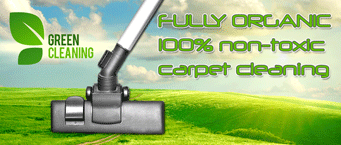Carpet Cleaning Concord CA | Carpet Cleaning Service Concord CA
Carpet Cleaning Concord Ca
OUR GOAL IS TO EARN YOUR BUSINESS FOR A LIFETIME!
Concord Carpet Cleaning Service
Accents in Cleaning
Accents In Cleaning is a locally owned and operated carpet cleaning company proudly serving the Concord, California area. We offer professional carpet restoration, area rug cleaning, natural stone polishing, hardwood floor and upholstery cleaning, pet odor as well as additional services to improve and protect surfaces in your home, including pet stain removal, stain protection, and urine treatment and deodorization.
Our staff of reliable and professional cleaning technicians are ready to serve you. With many years of experience, you’ll get a high-quality carpet cleaner at an affordable rate.
We take pride in serving our community. That’s why we offer a satisfaction guarantee on all our cleaning jobs. If our services aren’t up to what you expected, give us a call and we will work to fix it.
We clean all types of carpets and rugs plus we have the right tools for upholstery cleaning and tile cleaning and grout cleaning and natural Stone polishing.
Accents in Cleaning
Professional Carpet Cleaning Service

Quality Carpet Cleaning Solution

CORE VALUES
Our Cleaning Process
- Pre-inspection: We inspect every carpet thoroughly before cleaning it to identify all stains and high traffic areas.
- Pre-Groom: We pre-groom your carpet to loosen the dirt and debris.
- Extract & Rinse: We extract all the dirt that was loosened up from the pre-grooming process.
- Neutralize: We leave your carpets PH balanced which leaves them soft and free of any dirt or residue.
- Speed Dry: We use high powered fans to dry your carpets extremely fast.
- Post Grooming: We manicure your carpet so all of the threads are pointed in one direction which looks nice and also helps speed up the drying process.
- Post Inspection: Post walk through to make sure your carpets are perfect.
Cleaning Method
How Our Carpet Cleaning Service Works
Professional Carpet Cleaning in The Concord Area
Commercial & Residential Carpet Cleaning
We are open to any cooperation with other companies! We can establish long-term and mutually beneficial relations and become reliable partners.
Concord Carpet Cleaning Company
Most people only notice the condition of their carpet and upholstery when they become visibly soiled. But by the time it’s finally noticeable, layer upon layer of stains, bacteria, and mineral deposits will have built-up into a mess you can’t clean on your own, You need a carpet cleaner for that new clean carpet look.
It used to be that carpet and upholstery had to be replaced once they reached this state — but now you have a better option. With our rotary cleaning system we can restore soiled carpet and upholstery to look like new!
Even if your carpets still look clean, they almost certainly contain unseen filth that can affect color and sanitation. So for complete restoration or routine maintenance, let us demonstrate the amazing results of our revolutionary system.

Carpet Cleaning Experts
Although regular vacuuming can remove dry soil and debris from your carpeting, it leaves behind oily soils and particles that are produced from cooking vapors, pets, and dirt tracked in from outside the home.

Tile Cleaning Services
Most tile and grout cleaners rely on water pressure or steam to clean hard surfaces. These floor cleaning methods can be inefficient and, in some cases can actually damage your tile and grout flooring!

Spot Removal Guide for Carpet
Step by step advanced treatment recommendations. (see bottom for spotting solutions)

Commercial Carpet Cleaning
Commercial cleaning is just one of the types of services we offer. We clean hard floors, vinyl flooring, tile and grout. We also do upholstery cleaning, rug cleaning and stone polishing services.
1,850+ PEOPLE HAPPY CUSTOMERS
Expert Carpet Cleaning Services
We have been servicing the Concord CA area for 17 years! We have great reviews and we are just a call away for the best carpet cleaning service you have ever had
Carpet Cleaning Service Offered
Concord Carpet Cleaners has served all of Concord residents’ carpet needs. We specialize in carpet cleaning in Concord. Our services have become such a fixture in the community that we have developed relationships and partnerships in the area. Our customers have been and will continue to be our most treasured relationship. We thank all of you so much for trusting us with your carpet cleaning needs. We are also proud of the professional relationships that we have nurtured for over a decade. Carpet Restoration Near Me
We will get your carpets looking like new again in no time. Using the latest in carpet cleaning techniques, we offer deep carpet cleaning that is safe for the environment as well as your pets. Our high-powered cleaning equipment shampoos and scrubs dirt and grime from deep within your carpets, lifting and removing them for our disposal. You’ll experience quick service and fast drying times, and your home or business will look great at a price you can afford.
Our trained cleaning technicians know the appropriate methods for cleaning your rug, whether it’s synthetic, wool, silk, or another natural fiber. Your rugs will get special care ensuring they are safely and effectively cleaned, providing many more years of appeal in your home or business.
Using a similar process used to clean carpets, we provide a thorough and deep cleaning of upholstery, removing grime, killing germs, and making your furniture look great again.
